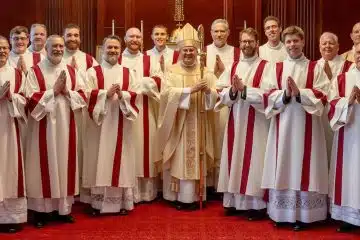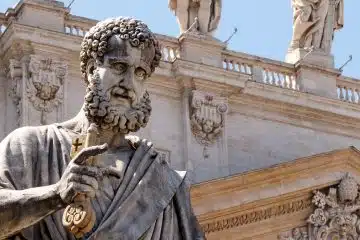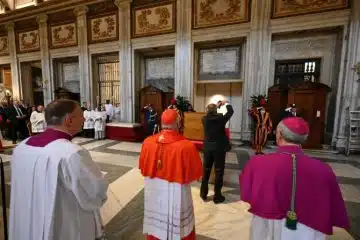Give it a little time
By Sister Betty Jane Lillie, S.C.
Third Sunday of Lent: Exodus 3: 1-8a, 13-15; Psalm 103:1-4, 6-8; 1 Corinthians 10: 1-6, 10-12; Luke 13:1-9
Our Gospel passage this week gives us a focus for understanding the message of our liturgical readings. It falls into two parts: one stresses the renewal that takes place after repentance, and the other reminds us of God’s mercy that gives us the time we need to come to repentance.
Luke represents the suffering of the Galileans as a call to repentance. The biblical term for repentance is “to turn” or to “turn around.” The concept generates a process of renewal that works toward a productive spirituality in our lives. We sometimes hear the expression “to turn one’s life around” used in such a way as to suggest taking a new attitude toward living according to God’s plan for us. This new approach is a way of renewal that opens us to God’s grace working in our lives.
The Gospel parable about the fig tree speaks to God’s mercy that gives us the time we need to turn to the Lord (repent) and take a new direction in our lives. Sometimes it takes time to work through our difficulties, but the Lord is patient and gives us the space we need to grow in His love. The Lord is like the vinedresser in the parable. He sees the value of the human person and is willing to allow us to grow and develop into a better expression of our life in His grace. “Let it alone, sir, this year also.” It may still be productive. All one needs to do is to try to follow the word of the Lord.
In his First Letter to the Corinthians Paul warns the faithful against being over confident because of their practice of the religious rites, even those such as baptism and the Lord’s Supper. Besides these, it is also necessary to live virtuous lives that are pleasing to God and edifying to the society in which we live. The apostle says, “Let anyone who thinks he stands take heed lest he fall (1 Corinthians 10:12).
The Christian way of life works out in the practice of the virtues of the Christian life to which Paul often refers. Many examples of these are available, but one beautiful passage is what is sometimes termed the “Hymn to Charity” (1 Corinthians 13:1-13). The great gift of the Holy Spirit is the very love of God given to the church in Christ. Love never ends. So, He says, “Make love your aim, and earnestly desire the spiritual gifts (1 Corinthians 14:1).
This puts our striving to live the Christian life in continuity with salvation history that reaches back through a long time of God’s presence in the historical lives of His people. From the appearance of God veiled in fire in the burning bush (Exodus 3:2), to the tongues of fire that rested upon the apostles and some others with them on the first Pentecost (Acts 1:12-14; 2:3), the spirit of God continues to be active in the lives and spirituality of all of His people as we grow in our relationship with the Lord.
As the psalmist blesses the Lord for His steadfast love and mercy, we all can sing our praises to the Lord who is slow to anger and abounding in His love for us (Psalm 103).
Sister Betty Jane is a faculty member at the Athenaeum of Ohio.













